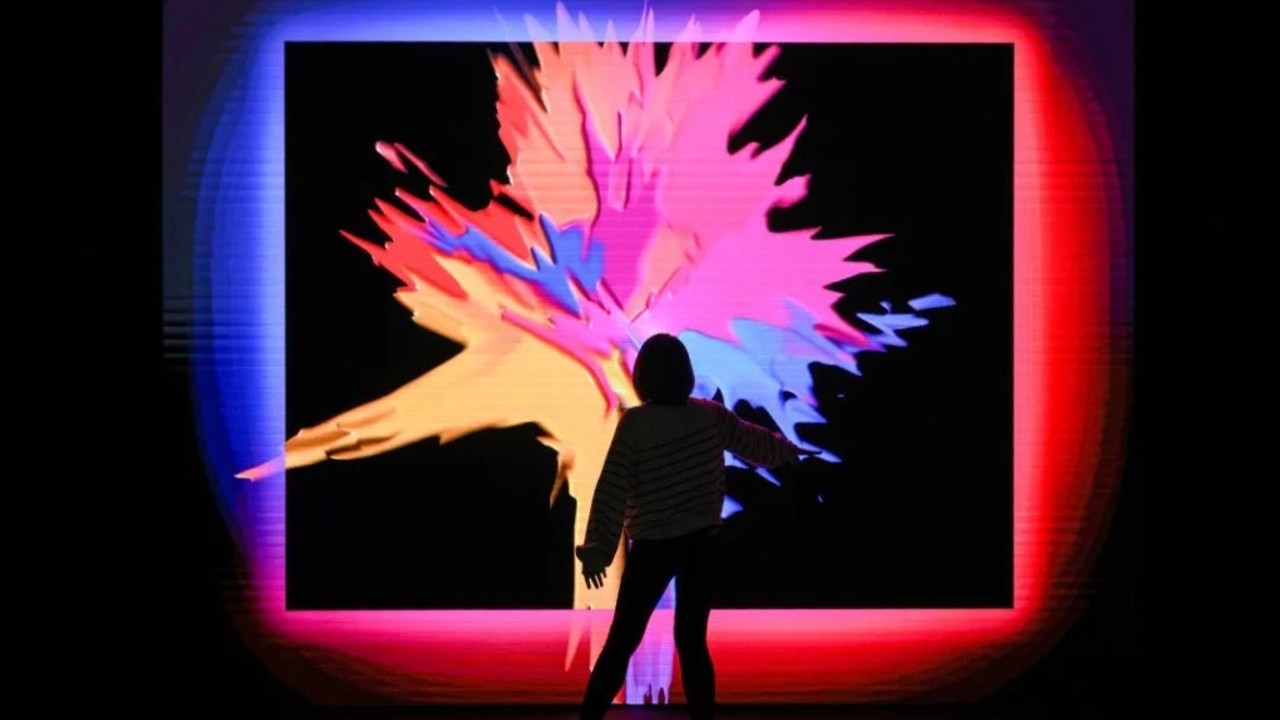How have technological objects changed human relationships with the world? The question stood at the heart of Centre Pompidou’s 1985 “Les Immatériaux” — an exhibition groundbreaking in its scale, cost, and, naturally, ambitious use of objects; IBM computers, radio-frequency connected headphones, and devices that warped the senses of visitors.
Thirty-five years later, the question remains ever-pertinent — a point not missed by Beijing’s UCCA Center for Contemporary Art as it opened “Immaterial / Re-material” by paying tribute to the Parisian exhibition.
Postponed from February, the exhibition tracks the evolution of computing art from the 1960s to the modern day asking timely questions such as what is digital art? How do we define the aesthetics of a machine? Where are the boundaries of machine and artist?
The exhibition is arranged into four sections, features 29 artists and duos, and is set to run until Jan 17, 2021.
Why it matters
Beyond presenting the history of computer art through artistic reflections over the past 70 years, UCCA Lab has created a section of immersive installation works alongside Canadian multimedia studio Moment Factory and Baidu, China’s major internet search engine.
The artificial intelligence (AI) section of “Immaterial / Re-material” turns the visitor into an art participant with gestures, sounds, and actions on a UCCA app capable of impacting the artworks.
Immersive exhibitions have been extremely well-received by Chinese Millennial and Gen Z audiences in recent years — in part due to their shareability on social media — as demonstrated by the decision of Japanese immersive art collective teamLab’s decision to open its first permanent space in China last year.
What UCCA says
“Artificial intelligence is using algorithms to expand the possibilities for humans. This is why Baidu and UCCA Lab have worked together to create this AI art exhibition, one combining technology, art, and emotion. We look forward to seeing you take this immersive, interactive, multi-sensory journey.”
— UCCA WeChat
What it looks like
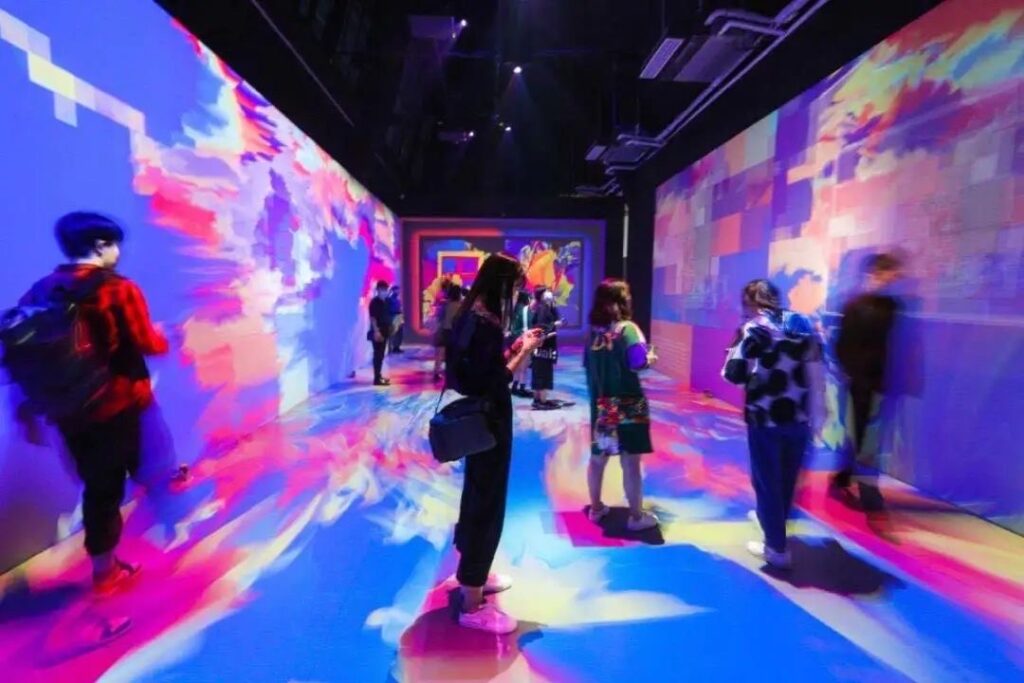
Image: UCCA WeChat Account
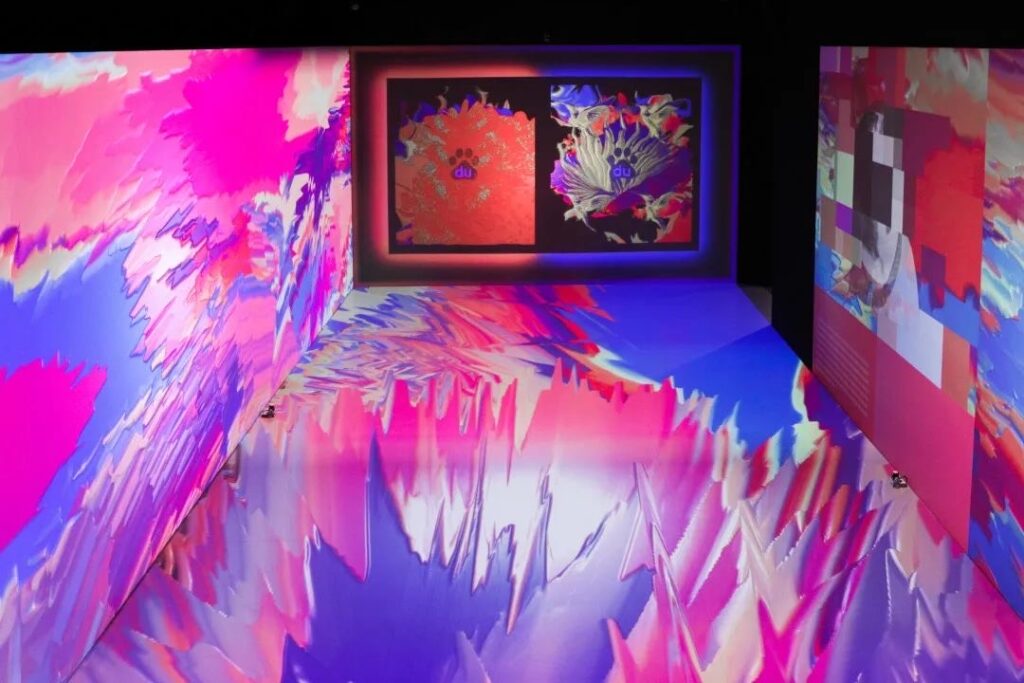
Image: UCCA WeChat Account
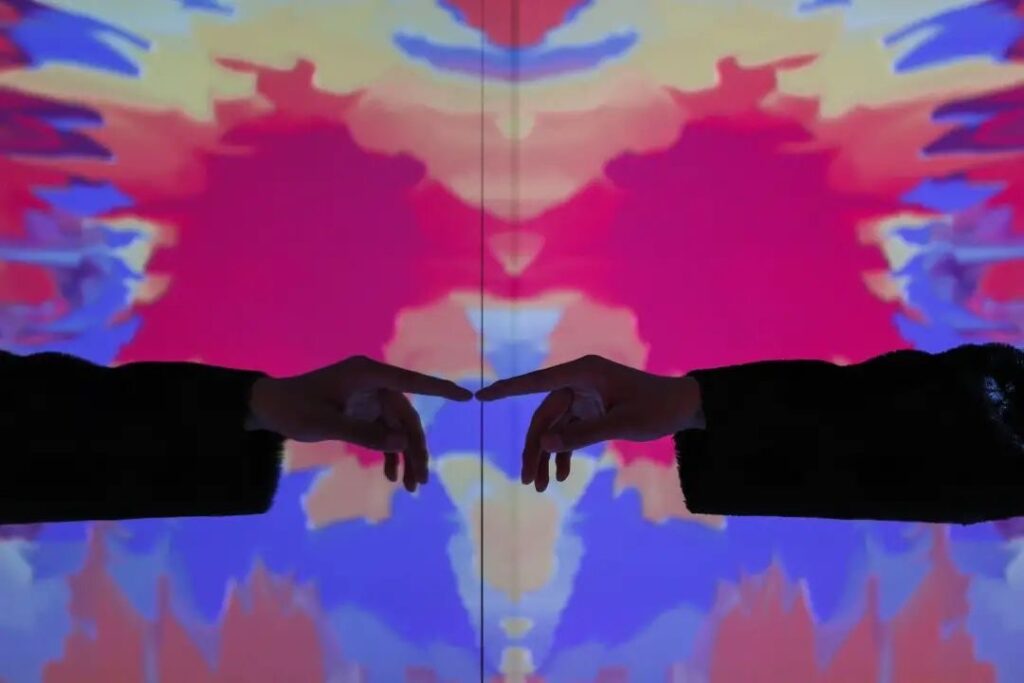
Image: UCCA WeChat Account
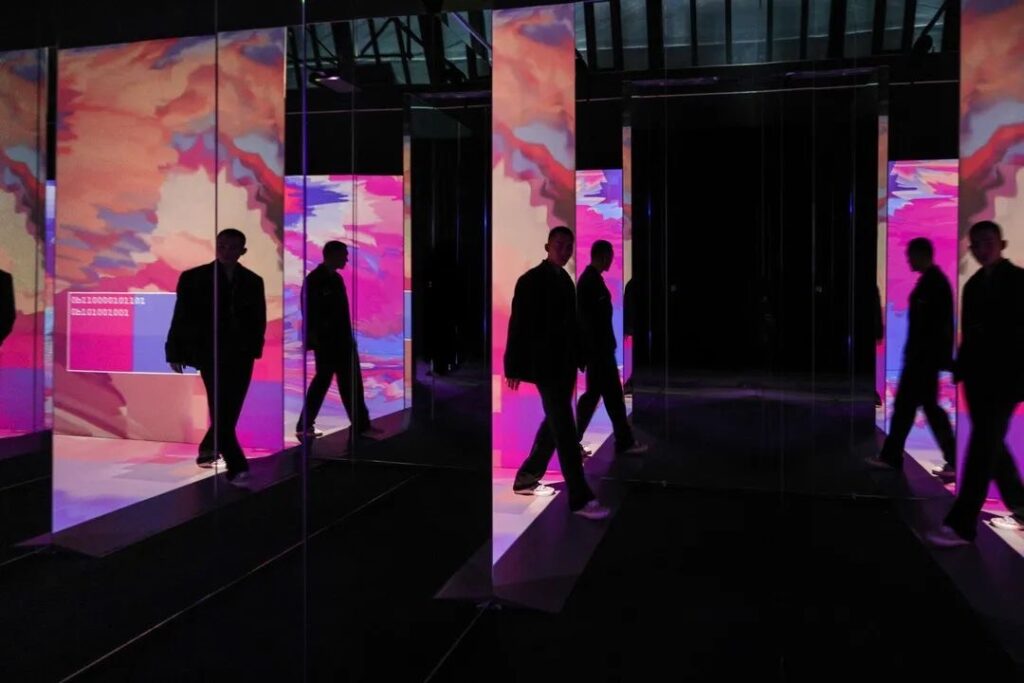
Image: UCCA WeChat Account

